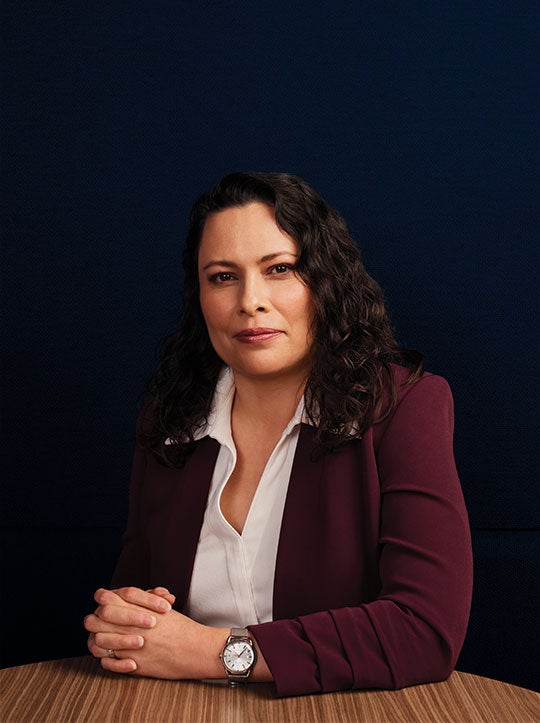Local Impact, National Reputation
Rice’s Kinder Institute for Urban Research develops solutions to help all Houstonians prosper.

Spring 2024
By Tracey Rhoades
The Kinder Institute for Urban Research has earned national attention for its work to understand the Houston region’s biggest challenges by developing research partnerships with community organizations working to improve lives. Founded in 2010 with a $15 million gift from Houston philanthropists Rich and Nancy Kinder, it remains focused on improving quality of life for those who live here.
“Through research, we can develop solutions that eliminate need and ensure that everyone has an opportunity to build and share in Houston’s prosperity — an inclusive prosperity,” says Ruth N. López Turley, director of the Kinder Institute.
It’s time to move beyond research that identifies problems to research that identifies solutions.
The institute’s five research centers focus on housing, education, economic mobility, community health and population. Through partnerships with community organizations, this research helps solve critical challenges in the Greater Houston area. For example, insights from the Houston Education Research Consortium — 11 area school districts representing 700,000 students — have fostered wraparound services, early education efforts, career and technical education programs, and bilingual initiatives.
New organizational partners include the United Way of Greater Houston, the Harris Center for Mental Health and the Houston Housing Authority. In 2024, researchers will release the fifth annual State of Housing in Harris County and Houston, the definitive local report on the local housing system.
“It’s time to move beyond research that identifies problems to research that identifies solutions — and not just solutions that address symptoms, but solutions that address root causes,” Turley says.
Five Things To Know About the Kinder Institute for Urban Research
1. The institute’s National Network of Education Research-Practice Partnerships helps support over 70 partnerships between education agencies and research institutions across the U.S.
2. The Community Bridges program supports small-scale research partnerships by pairing Houston nonprofits with Rice undergraduates who undertake internships and carry out research-driven projects that enable them to confront real-world problems head on.
3. The annual Kinder Houston Area Survey, which has tracked the city’s social and demographic changes since 1982, is the longest-running metropolitan study of its kind. The institute has expanded its survey capabilities with the Greater Houston Community Panel, comprising 7,500 Harris County residents, making it possible to capture Houstonians’ perspectives on city policy, housing and many other topics at a neighborhood level.
4. The institute is home to the Urban Data Platform, a curated data library focused on the Houston region, as well as Houston Community Data Connections, an interactive public dashboard capable of visualizing over 120 local indicators at the ZIP code, neighborhood and school district level.
5. The Kinder Institute Forum lecture series brings thought leaders from around the world to Houston to share ideas about pressing urban issues, while the Urban Edge digital news platform publishes fresh ideas about the ways cities work.
Learn more at kinder.rice.edu.
